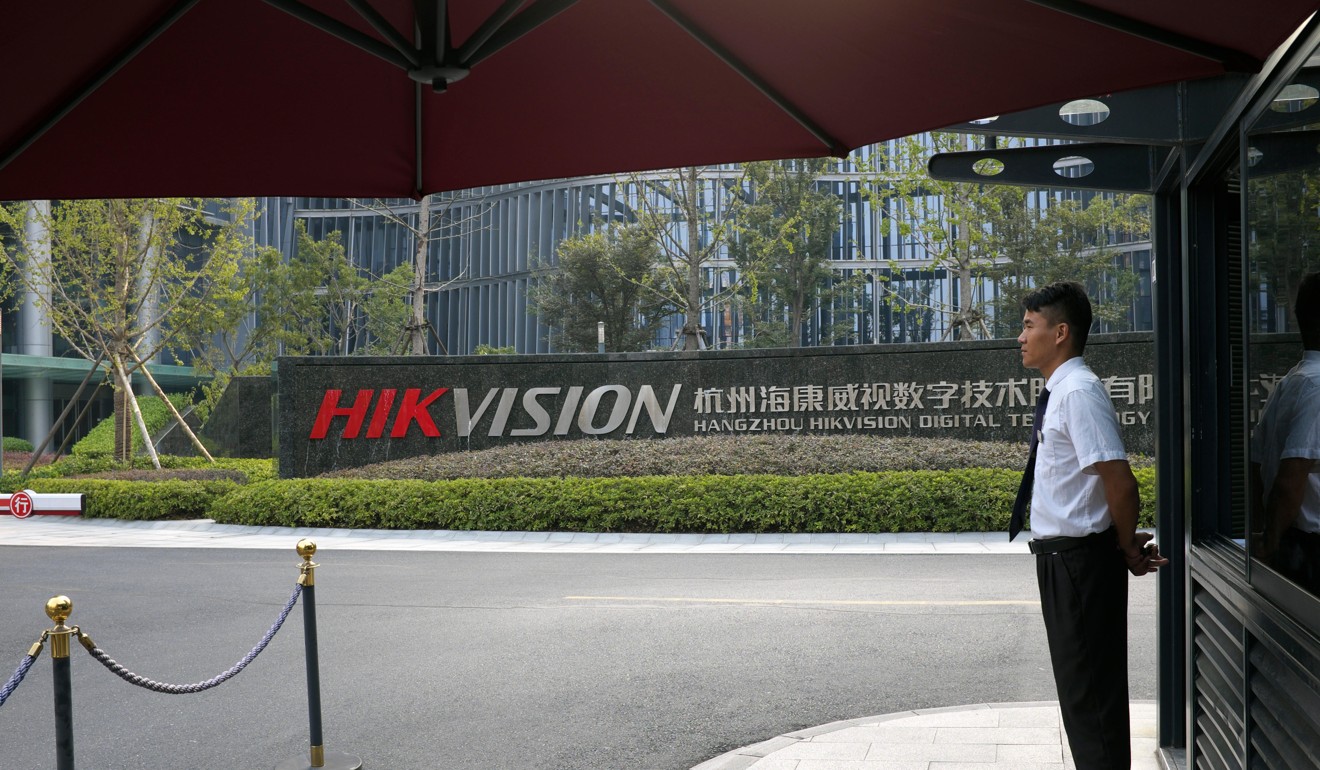
China’s Hikvision hits out at US Congress over ‘baseless’ ban on using surveillance equipment over national security concerns
Security camera manufacturer reacts after House of Representatives adds it to list of companies seen as threatening US national security
A leading Chinese manufacturer of video surveillance technology has criticised as “baseless” a vote by the US Congress to ban the federal government from buying its products because of national security concerns.
The House of Representatives last week passed a US$717 defence bill that carried an amendment, which forbade US government agencies from buying surveillance products from Hangzhou Hikvision Digital Technology and two other Chinese firms – Hytera Communications Corporation and Zhejiang Dahua Technology Company.
Hikvision, based in the eastern Chinese city of Hangzhou, is the latest Chinese company that the US has sought to ban from selling products to the government because of security worries.
In a statement published on its official social media account on Saturday, Hikvision – one of the world’s largest makers of video surveillance equipment – said it was disappointed by the vote.
It said there was no proof that it threatened US national security and that such an accusation carried “obvious speculation and bias”.
“Hikvision is a commercial entity that operates globally and strictly conforms to business ethics and all relevant regulations,” the company said. “We are dedicated to the advancement of safety in all countries and regions.”
It could take months before the bill goes into effect because it has to be reconciled with a similar bill from the Senate and then passed to President Donald Trump for approval.
Dahua, Hikvision’s main competitor, said on Friday that the potential ban would have little impact on the company since its business in the US was still small.
Hytera has not publicly commented on the matter.
Founded in 2001, Hikvision has quickly morphed from a former Chinese government research institute to a highly lucrative business, partly because of its close ties to the government.
Three state-owned enterprises own a total of about 42 per cent of the company, while the rest are owned by a combination of general public shareholders and financial institutes, including 9.7 per cent from Hong Kong Securities Clearing Company.
Pu Shiliang, Hikvision’s head of research and development, also directs a technology lab inside China’s Ministry of Public Security, which has been criticised for tracking and detaining dissidents.
By the end of last year, the company had employed more than 26,000 people globally, about half of whom worked in its research and technical service departments.

Last year Hikvision reported net profits of 9.4 billion yuan (US$1.5 billion), up by 26.7 per cent from the previous year. according to its annual report published by Shenzhen Stock Exchange.
This compares with a net profit of 364 million yuan 10 years previously.
The company says its products are sold into more than 150 territories. In America its products have been installed in schools and prisons as well as sensitive sites such as the Fort Leonard Wood army base and the US embassy in Kabul.
In 2016, Edward Long a former staff member from a video surveillance equipment maker in Florida claimed in a change.org petition to the White House that Hikvision’s cameras were sending footage back to China.
In a subsequent interview with Voice of America Frank Fisherman, a manager at Long’s former employer, IC Realtime Security Solutions, said Hikvision devices “have their encrypted information set up so they can access even if you change the admin [passwords] and the firewall”.
Hikvision refused to comment directly on the claims at the time, but Jeffrey He, the head of the firm’s North American business, told the Security Informed website that third-party cybersecurity firms tested its products and “so far, we have seen no evidence to suggest any ‘back-door’ access to our products by a government or a law enforcement agency anywhere in the world”.
The bill passed this week also banned US government agencies from using technology made by two of China’s biggest tech firms, ZTE and Huawei, and will prohibit the Department of Defence from renewing contracts with vendors that work with the two telecom companies.
Trump triggered a backlash on Capitol Hill when he suggested that a ban on US firms selling components to ZTE – imposed for violating sanctions on Iran – could be rowed back as part of a deal to avert a trade war.
Hours after the House of Representatives passed the bill, the US Commerce Secretary Wilbur Ross said that the White House was considering options such as installing compliance officers with the tech giant other than placing crippling penalties on ZTE.
。

